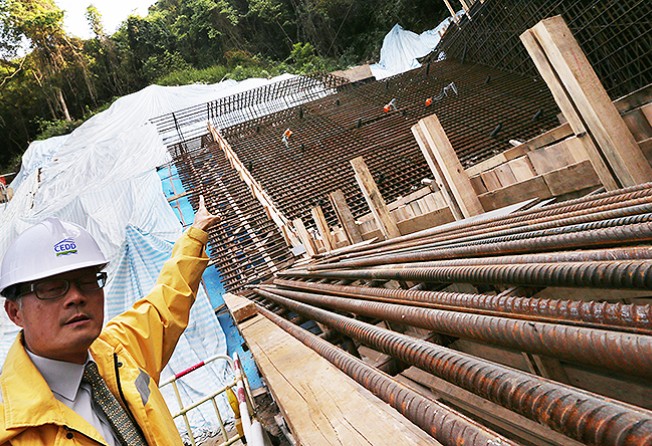Engineering innovation can shape Hong Kong's future
Alan Man says the profession needs more of our best and brightest

Hong Kong needs more space. The city is known for its bustling streets, thriving business community and iconic skyscrapers. On many fronts, Hong Kong is seen as one of Asia's greatest cities.
It is a hard-earned position based on sound long-term planning, robust policies and a determination to lead.
With a population of more than seven million and a population density of 6,620 people per square kilometre, the crucial question is: how will Hong Kong maintain its competitive edge when it is on the verge of utilising all its limited land space?
Sustainable economic growth requires many foundational elements but, in basic terms, to increase the scale of the economy and its productivity, more space, more land and more people play crucial roles.
Innovative engineering holds the keys to our prosperity. The profession needs our best and brightest.
The all-time high of Hong Kong's capital works expenditure, for 2013-14, sends a positive and clear message - opportunities are vast within engineering and there will be no shortage of projects to work on.
When times are good or bad, engineers are called on to find a solution. During the water shortage crisis in the 1960s, engineers transformed an inlet into a freshwater reservoir through the Plover Cove Scheme. It was the first project of its kind in the world and, most importantly, engineers helped create a new source of drinking water for Hongkongers.
These days, other environmental concerns are driving new thinking and innovation. Hong Kong's first saltwater cavern reservoir, delivered recently, is a testament to such creativity and much-needed problem-solving. The award-winning project, built on the grounds of the University of Hong Kong, is not only acclaimed for its design, but also for its environmental impact, whereby trees and wildlife were saved. In fact, an entire mountain side was preserved. These cavern solutions are now being considered elsewhere in Hong Kong and around Asia.
Engineers also serve as stewards of industries. Aside from business administration and economics, engineering is one of the most common undergraduate degrees among Fortune 500 CEOs. With their wide skill sets in project management, analytical mind and acumen for numbers, engineers make natural leaders to handle the reins of a company or even a government.
It's not just space Hong Kong is short of: the city is also short of engineers. According to the Hong Kong Institution of Engineers, engineering companies last year reported a 20 per cent shortage of staff, and were resorting to hiring engineers overseas. In the long run, this approach is not sustainable and leaves a massive dent in the quality of Hong Kong's workforce.
The finance and property sectors form a crucial part of Hong Kong's economic backbone. For years, thousands of graduates have flocked to these sectors in the hope of high salaries and career advancement. Ask yourself, will these mature sectors always bloom? The property market is often cyclical and the banking industry is still recovering from the global financial crisis.
As Hong Kong continues to evolve, it needs more of its young, bright citizens to enter the profession of engineering to help solve our current and future problems. We need a better balance. We need our teachers, parents and the bright young people to reconsider engineering. Engineers will shape the future of Hong Kong.
Alan Man is vice-president and managing director of US engineering firm Black & Veatch's Water Business in Greater China